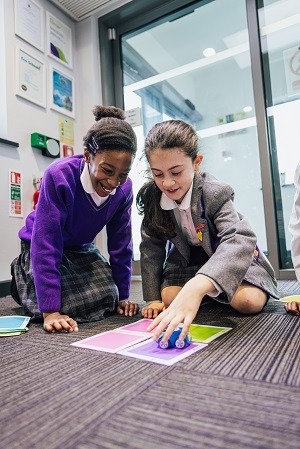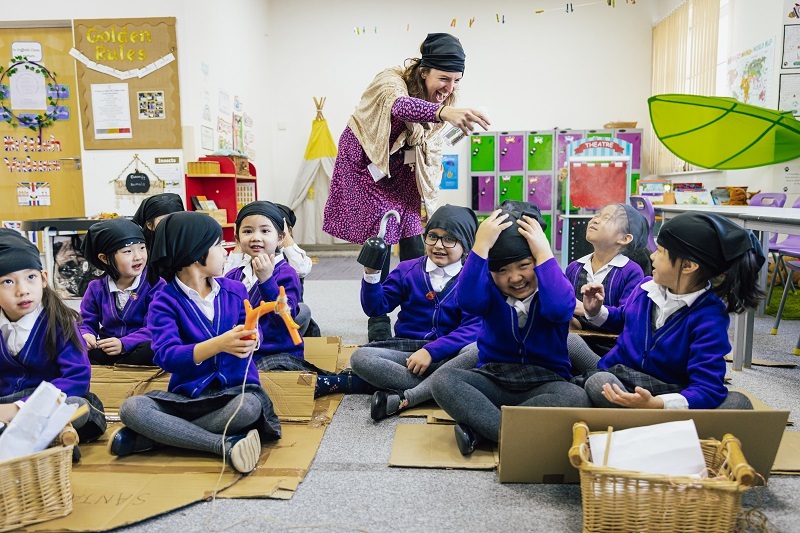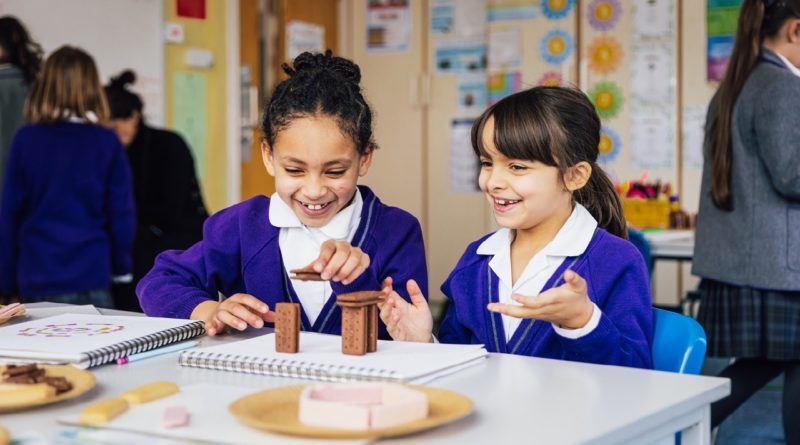Manchester High School for Girls: The role of happiness
Empowering young girls is crucial for creating a more inclusive and equal society. By providing girls with the necessary tools, opportunities and support, we can help them overcome societal barriers and achieve their full potential. A high aspiration, no doubt, but one that all educators, particularly those involved in girls’ only schools, seek to create.
If, at the start of their educational journey with us at MHSG, I was to ask the parents of the girls in our Preparatory Department what they hoped the school would provide for their daughters, very few would talk of ‘equality’ or ‘societal barriers’ at this point, but the word ‘happiness’ would appear almost universally in their description of the ideal school. Of course, they would talk of realising academic potential, excellent pastoral care and a comprehensive programme of extra-curricular opportunities, but the notion of their daughters being happy in school would feature very highly.
Some may argue, therefore, that ‘happiness’ is an overused word, with diluted significance. Some, too, may believe it to be a superficial term describing a more fleeting than sustained emotion. That said, I believe that if we stop and think carefully about the term and its role as an antecedent to education, ultimately, we will all reach the conclusion that happy girls flourish. The question for us as educators is, why do happy pupils flourish and how can we provide an environment that fosters ‘happiness’?
 Research has shown that happiness is a precursor to academic achievement. When pupils are happy, their cognitive functioning is improved. This leads to better focus, comprehension, and retention of information. Happiness can fuel intrinsic motivation and a genuine interest in learning. When students are happy, they are more likely to ‘think outside the box’ and generate creative solutions to problems. Happy pupils tend to have healthier relationships and higher self-esteem. When pupils are happy, they are better equipped to handle setbacks, challenges, and academic stress. In other words, they are more likely to bounce back from failures, seek help when needed, and maintain a positive attitude towards their academic journey. This resilience can help them persevere through difficulties and ultimately achieve academic success.
Research has shown that happiness is a precursor to academic achievement. When pupils are happy, their cognitive functioning is improved. This leads to better focus, comprehension, and retention of information. Happiness can fuel intrinsic motivation and a genuine interest in learning. When students are happy, they are more likely to ‘think outside the box’ and generate creative solutions to problems. Happy pupils tend to have healthier relationships and higher self-esteem. When pupils are happy, they are better equipped to handle setbacks, challenges, and academic stress. In other words, they are more likely to bounce back from failures, seek help when needed, and maintain a positive attitude towards their academic journey. This resilience can help them persevere through difficulties and ultimately achieve academic success.
At MHSG, we are mindful of this, and we actively build an environment with happiness and human flourishing at its core. Our Pupil Voice Leaders work within peer focus groups to ascertain our pupils’ attitudes to learning and establish how they feel they learn best. These sessions have revealed our pupils derive the most enjoyment from their learning when it is hands-on and practical. They mention their Design and Technology weeks, during which they design and create something purposeful, as particularly engaging. They enjoy Art when it is related to another curriculum area, such as linking the study of Shakespeare’s ‘A Midsummer Night’s Dream’ to abstract art and creating impressionist images of Uluru when studying Australia. One child said of their outdoor learning sessions: “It’s the best time of the week.”
They use the word ‘fusion’ (their word, not ours) to describe these cross-curricular links, and whilst this is nothing new in education, actively canvasing the views of the girls in this way is instrumental in designing schemes of work and activities and has led to them feeling that they are part of this process. They talk positively about the support and guidance they receive from their teachers and how they benefit when a teacher breaks problems down into smaller parts or finds alternative explanations. This can include creating a more collaborative and interactive learning environment, incorporating more visual and verbal learning techniques, and providing opportunities for girls to excel academically, all of which contribute to a feeling of happiness.
 Leadership opportunities are another example of how we can enhance self-confidence, self-esteem and therefore happiness. MHSG girls can be involved in the School Council, the Eco-Council, the Charities Council, the Diversity Council, become a ‘Happiness Hero’, a House Captain or a Pupil Voice Leader. Within a supportive and nurturing environment, we aim to encourage girls to take risks, express themselves and develop a strong sense of self-worth. A trip around the Prep on any working day will reveal girls actively participating in class discussions and engaging in extracurricular activities, all of which contribute to their personal growth, confidence and happiness. Furthermore, without them realising, this empowers them to challenge societal expectations and pursue their passions, without fear of judgement or bias.
Leadership opportunities are another example of how we can enhance self-confidence, self-esteem and therefore happiness. MHSG girls can be involved in the School Council, the Eco-Council, the Charities Council, the Diversity Council, become a ‘Happiness Hero’, a House Captain or a Pupil Voice Leader. Within a supportive and nurturing environment, we aim to encourage girls to take risks, express themselves and develop a strong sense of self-worth. A trip around the Prep on any working day will reveal girls actively participating in class discussions and engaging in extracurricular activities, all of which contribute to their personal growth, confidence and happiness. Furthermore, without them realising, this empowers them to challenge societal expectations and pursue their passions, without fear of judgement or bias.
Achievement and therefore empowerment cannot be realised in their fullest sense without happiness. That does not mean to imply that a child will not suffer periods of sadness or other negative emotions, but it is their ability to process these negative emotions independently and return to the state of being happy that measures their overall well-being. Schools have a responsibility in this regard too. We cannot shield pupils from the negativities around them, rather we must prepare them for these times, so that they can truly enjoy being happy when the period of challenge passes.
Empowering young girls is a collective responsibility that requires a multifaceted approach. By investing in education and promoting happiness and self-worth, we can create an environment where young girls can thrive and reach their full potential. It is essential to break down societal barriers, challenge gender stereotypes, and provide equal opportunities for girls to succeed. Empowered young girls will not only transform their own lives, but also contribute to building a more inclusive and equal society for all.






